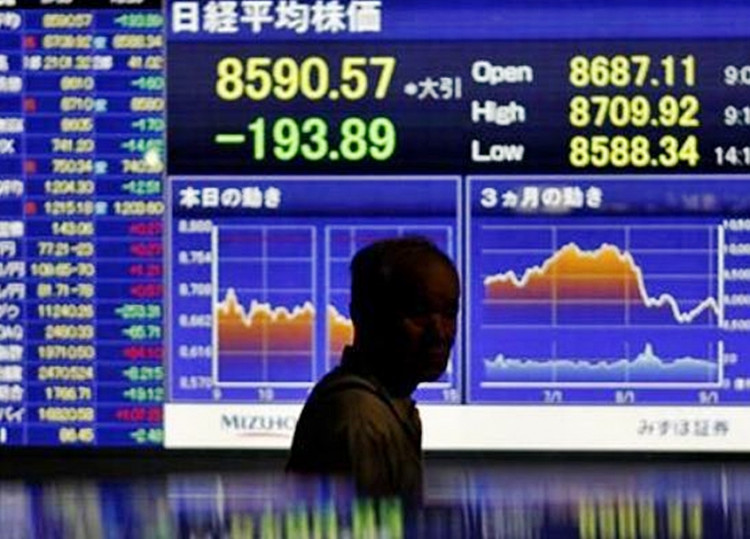The benchmark Nikkei (or Nikkei 225) index of the Tokyo Stock Exchange rose to its highest level in nearly 27 years on the morning of Sept. 28 -- albeit temporarily -- as the weakening yen boosted Japanese exporters and investors anticipated positive corporate earnings.
It struck a record high of 24,286.10 but ended at 24,120.04 at the day's closing or an increase of 1.36 percent from Thursday. This year's highest closing price stood at 24,124.15, and the Nikkei on Friday barely missed this record.
The Nikkei improved slightly by one percent for the week for a third straight week of gains. For the entire month of September, the Nikkei advanced 5.5 percent to record its biggest monthly gain since October 2017.
Analysts said this improved sentiment was caused by expectations of improved earnings and by rising U.S. yields that helped lift shares of financial firms out to buy high-yielding products on the cheap. Most buyers are short-term foreign investors, but mid- to long-term investors will soon catch-up with the rally as well.
Some analysts are confident the Nikkei index will reach 25,000 points by the end of the year on the back of strong earnings reports from Japanese exporters due to the weaker yen
Analysts pointed out that positive trading factors, including a weak yen, dominated the market last week. As usual, a weaker yen was good news for exporters because it boosts their overseas profits when repatriated.
The weaker yen and a strong U.S. economy helped exporters rally. Nintendo Company rose 1.5 percent, Subaru Corporation improved 2.3 percent while Kyocera Corporation saw its stock improve by 1.8 percent.
The dollar stood at ¥113.52 on Sept. 28, up from ¥113.39 in New York on Thursday afternoon. The yen-dollar exchange rate traded above ¥113.67 to hit a fresh nine-month high on Friday. This development heightened hopes for better earnings for Japanese companies.
Mounting U.S. trade pressure on Japan seems to be easing for now following trade talks in New York, which also supported investors' sentiment in Japan. Last Wednesday, Prime Minister Shinzo Abe announced an agreement to start negotiations on a trade deal after meeting with U.S. President Donald Trump.
Abe said he and Trump had agreed to "refrain from taking measures against the spirit of" their agreement, "which means the U.S. will not impose" additional tariffs on Japanese-made cars -- hopefully.
Analysts said many companies based their foreign currency expectations at ¥105 this year so it's to be expected that many companies will revise their forecasts upward in the coming weeks.





